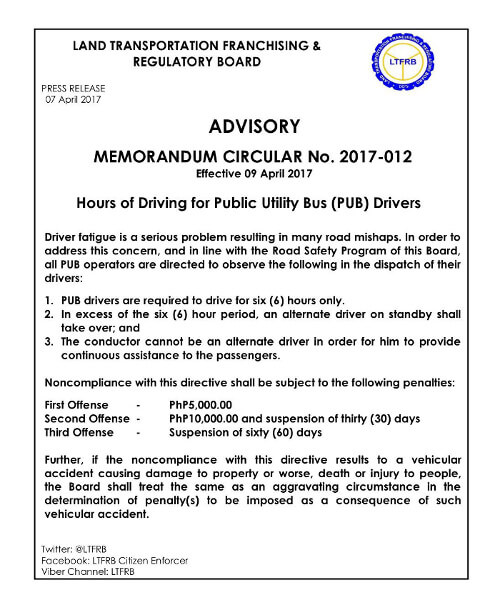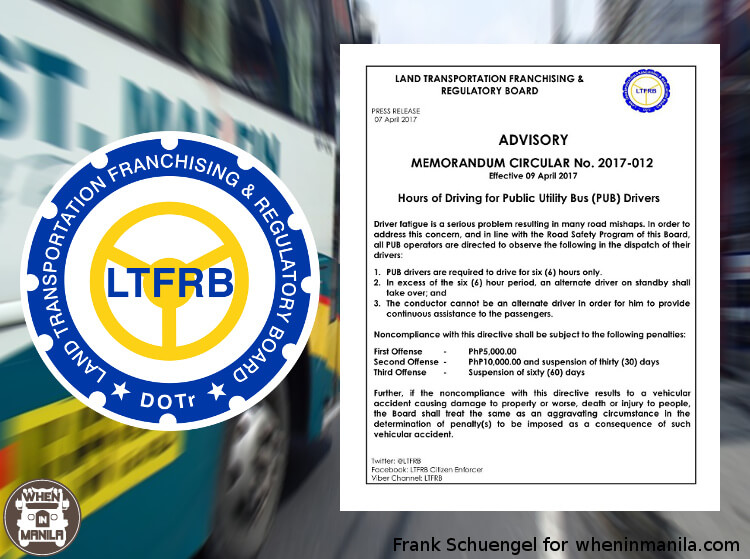The LTFRB has just issued a memorandum limiting the driving hours for bus drivers to six hours per day. While this is a step in the right direction, questions remain on how this new rule will be enforced.
FUNNY: New Color Coding Scheme on Metro Manila Roads Starts Today
Just in time for holy week, the LTFRB has issued a memorandum limiting the driving hours of all bus drivers to six hours per day. The exact wording of the memorandum, which was issued on Friday and comes into force on Sunday, 9th of April, can be seen in the image below, which was circulated on the agency’s Twitter page:

Germany, for example, has seen a steep rise in the popularity of so-called FernBus (long distance bus) travel in recent years. Instead of buying flight tickets or taking their own car, many people now opt for cheap bus tickets to reach various destinations within the country and further afield. This concept is very similar to the bus companies offering travel from Metro Manila to the provinces, but the way it is being governed is vastly different.
For starters, it is much harder to become a bus driver in Europe in the first place, but even once you have passed your exam, your every move behind the wheel is being monitored. German and European laws very precisely regulate how many hours a driver is allowed to work per day, and what breaks and rest periods he must take (in general, a driver may not driver longer than 9 hours per day, or more than 90 hours of driving every two weeks, with mandatory rest periods of 11 hours per day). To make sure people stick to these rules, each and every heavy goods truck and bus must be fitted with a device to record driving hours, which today is mostly done by electronic black boxes.
These devices, which are mandatory, record every detail of the vehicle’s operation, and drivers receive their own electronic driver cards which they must use to clock in and out, hence creating a detailed digital record that can easily be checked by police and is very hard to manipulate. This is now widely available standard technology and it would be relatively easy for the LTFRB to require all buses to implement this or a similar system (if they have not already done so).
So while it is great to see that the government is taking further steps to make the roads safer, enforcement must also be strict. In an environment where laws often only reach as far as the contents of your wallet, tamper proof electronic recording devices seem like a great way to ensure these new time limits are adhered to. In the end, this is about saving lives and no half measures are acceptable here.






